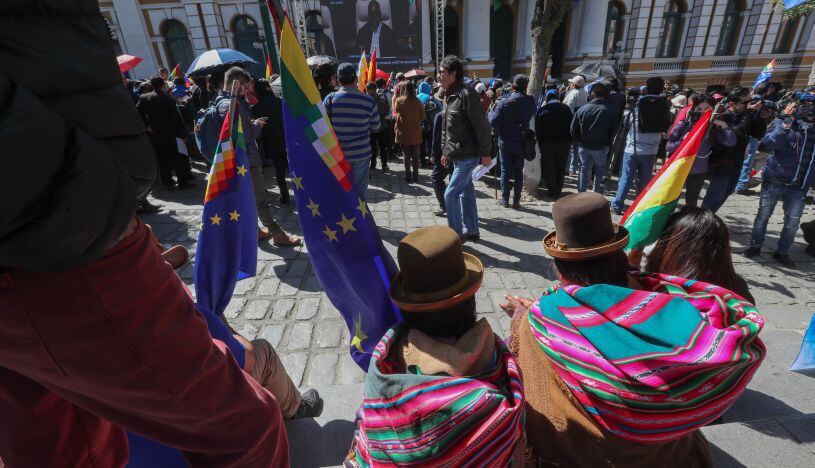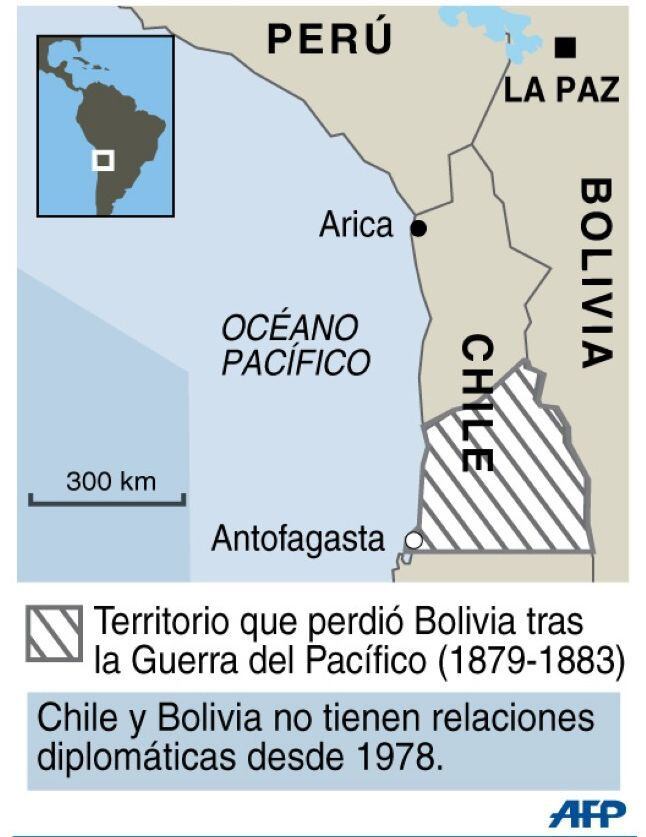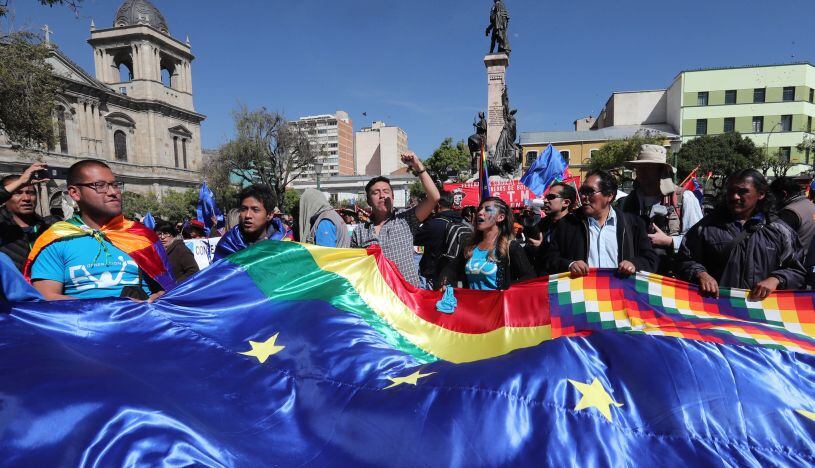Chili Y bolivian They have waged some of the most notorious territorial disputes in Latin America in recent years. This Thursday, December 1, the International Court of Justice (ICJ) in The Hague, the highest judicial body of the UN, will rule on the controversy between the two countries over the status of the waters of the Silala river, which La Paz defends as being It originates from some springs born in its territory, and Santiago considers it an international river. The ruling will be final.
READ ALSO: Bolivia: COVID-19 cases increase and hell dog variant detected
The silala born in some springs of Potosí, in bolivianand crosses the border into the Atacama desert, one of the most arid regions on the planet, until it flows into another riverbed in Chilibut its use and status have eroded relations between the two states in the last twenty years.
The case silala It is the latest in a long list of frictions between the two countries and the only dispute that remains pending before the Hague. Next, we recall the origin of the dispute over its waters, as well as other times when Chili Y bolivian They fought over territories.
The waters of Silala
the one of silala is a bitter bilateral dispute that drags on Chili Y bolivian since 2016, when then Bolivian President Evo Morales accused Santiago of “stealing” and “diverting” the river’s waters towards its border.
Chili responded with a request to bolivian before the ICJ to prevent La Paz from impeding the flow into its territory, arguing that it is an international river between the two countries, subject to specific regulations.
The silala originates in bofedales (high altitude wetlands) in the Bolivian department of Potosí and on its way crosses the border with Chiliwhich for that reason considers it a river of international water.
In 2018, bolivian responded with three counterclaims before the ICJ to ask the court to recognize his rights over the artificial flow of the river, due to the system of canals built to collect water from springs, and demanded that Chili pay compensation for the use of those resources.
La Paz defends that the waters of the silala They were originally some springs born in its territory, but which were channeled “artificially” thanks to works carried out in the 1920s by an Anglo-Chilean railway company, Antofagasta-Bolivia Railway Company, in Bolivian Potosí.
Claim for the sea also reached the ICJ
Most of the territorial disputes between the two countries date back to the War of the Pacific (1879-1884). Until the beginning of the 20th century, the territory of Bolivia reached the Pacific Ocean. But, with the result of the war, the Andean country ceded part of the Atacama desert, with which it lost its 400 kilometers of coastline in that conflict that faced Peru and bolivian against Chili.
The BBC recalls that the current territorial delimitation was established in a treaty signed in 1904, which states that Chilean sovereignty extends to the border with Peru and that of bolivian does not reach to touch the sea.
The document, however, grants bolivian in perpetuity a broad and free right of commercial transit through Chilean territory and through the Pacific ports.

“However, since then the country’s Constitution has claimed the “irrevocable and imprescriptible right of Bolivia over the territory that gives it access to the Pacific Ocean and its maritime space.””, says the medium.
The Morales government filed a lawsuit before the ICJ in 2013 to force Chili to firmly negotiate the maritime claim, but the ruling was adverse.

In 2018, the court determined that Chili You have no legal obligation to deal with bolivianalthough the Bolivian authorities understand that the sentence does not impede dialogue.
Chili He affirms that if he held dialogue in the past it was as an act of good will and not as recognition of a pending obligation, which in his opinion was settled after the signing of the 1904 agreement.
failed negotiations
In the last decades Chili Y bolivian They tried to talk to resolve the disputes, but the negotiations rarely achieved substantial progress.

The Spanish media “elDiario.es” recalls that in 1950 there was a dialogue between the diplomacy of both countries in which supposedly Chili it would grant Bolivia access to the sea and La Paz would grant Santiago rights over the waters of Lake Titicaca. However, when bolivian has presented the letters that record those facts, Chile has responded that it never assumed a formal commitment.
Another attempt was made in 1975. Those were times when both countries were led by military regimes, which allowed a new period of negotiations. in them, Chili, allegedly, acceded to Bolivia’s claims in exchange for a territorial cession of the same size over a river that originates in Bolivian territory. Finally the negotiations were closed without success in 1977.
In 2006 a new negotiation process began with the so-called “agenda of the 13 points without exclusions”. However, in 2010 Michelle Bachelet’s successor, Sebastián Piñera, ended the negotiations. “Patience is over,” responded Evo Morales in a speech months later.
Source: Elcomercio
I am Jack Morton and I work in 24 News Recorder. I mostly cover world news and I have also authored 24 news recorder. I find this work highly interesting and it allows me to keep up with current events happening around the world.

:quality(75)/cloudfront-us-east-1.images.arcpublishing.com/elcomercio/NBWBBXY52JCWRGRC5TEPSYQVDU.jpg)

:quality(75)/cloudfront-us-east-1.images.arcpublishing.com/elcomercio/TVKWNXBTAFGHBEDSVLZS5OOOKY.jpg)
:quality(75)/cloudfront-us-east-1.images.arcpublishing.com/elcomercio/SH7TJZEDJBHA5KJZGNVJC7IVXE.jpg)
:quality(75)/cloudfront-us-east-1.images.arcpublishing.com/elcomercio/DIWZTVLACFFLBBFI6UIVNLWKMA.jpg)
:quality(75)/cloudfront-us-east-1.images.arcpublishing.com/elcomercio/QB4EKPAJRNFB7JRBBRPJQNWNE4.jpg)
